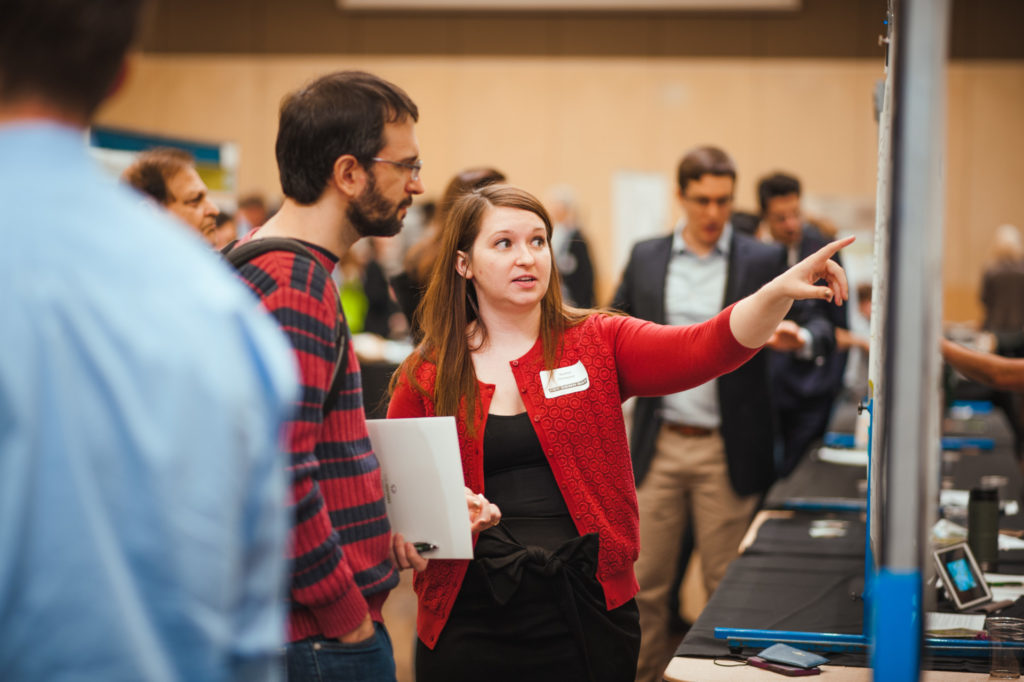
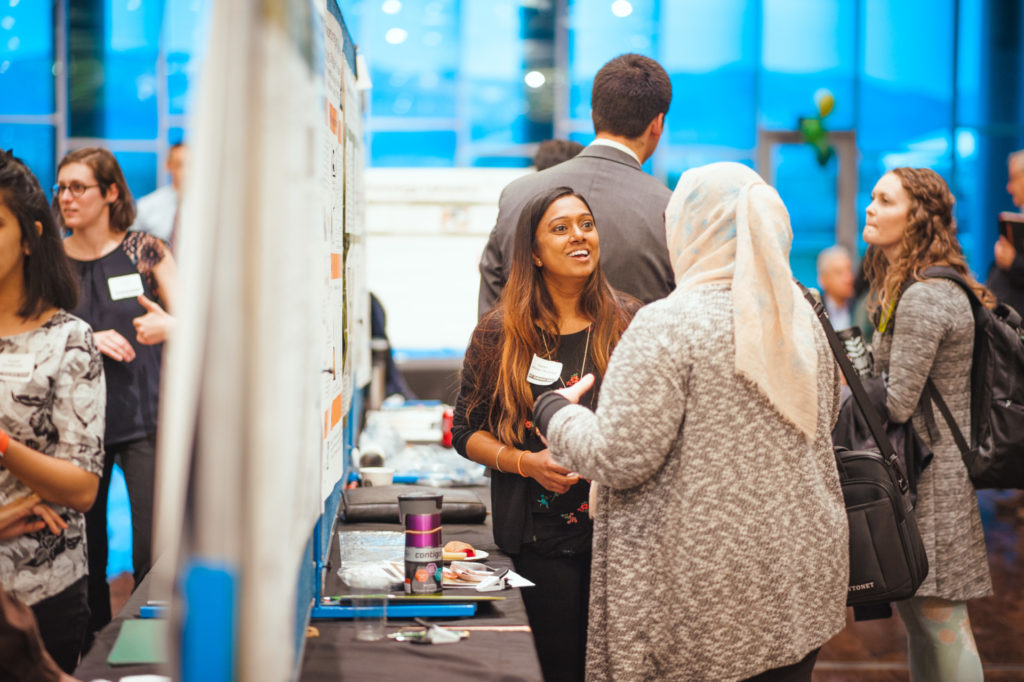
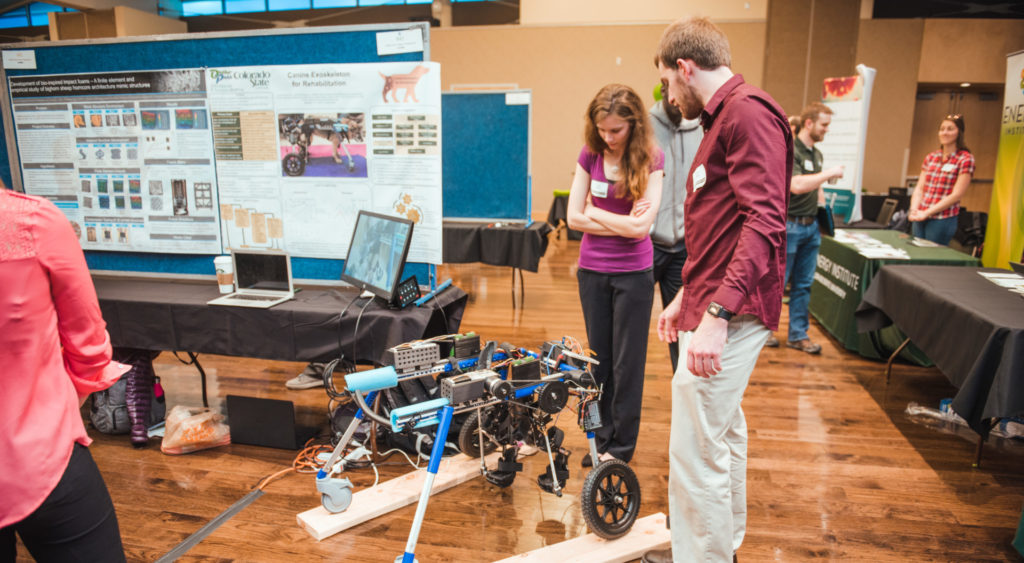
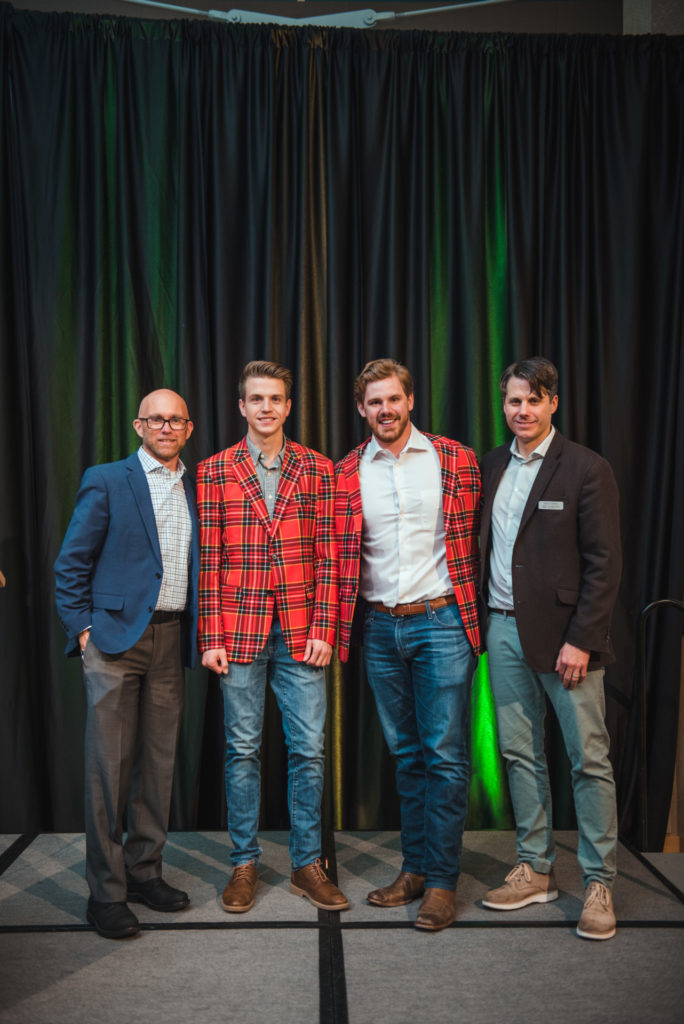
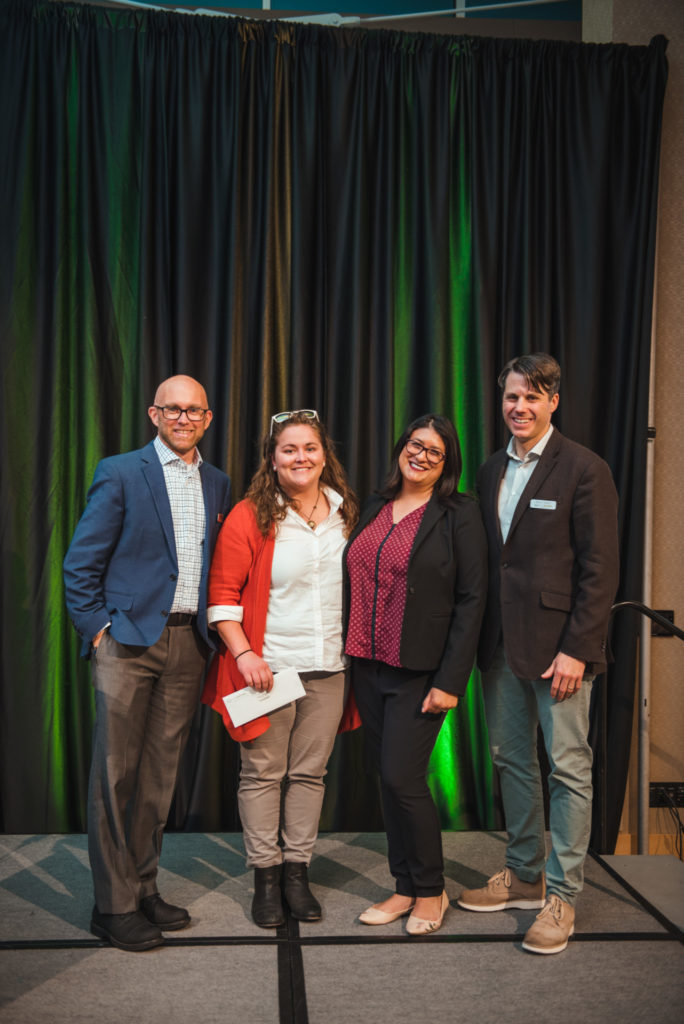
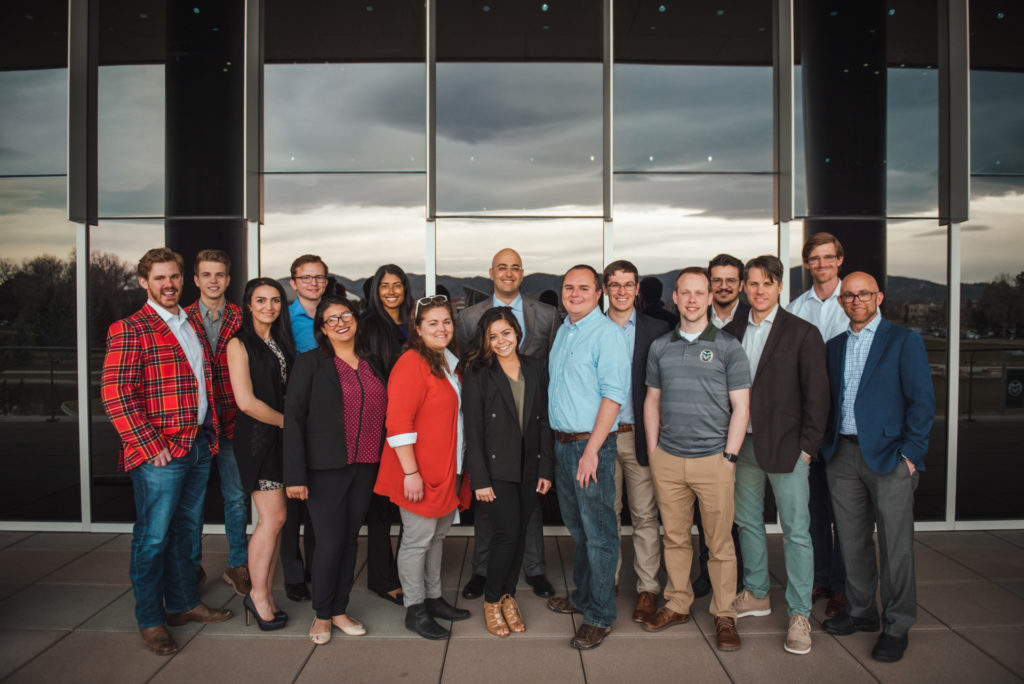
Students and faculty gathered in the Colorado State University Lory Student Center Ballroom April 10 for Demo Day, a premier event dedicated to the innovative and entrepreneurial community of CSU and Northern Colorado. More than 375 attended to hear keynote speaker Dr. Stephan Badylak, share the most innovative ideas across campus at the poster and company showcase, and to network with industry experts at a reception where the winners were awarded cash prizes for their work.
CSU Ventures recognized 14 awardees out of 95 submitted posters/abstracts, for a total of $34,000 in cash awards for their exceptional work.
People’s Choice Award for Company Display
Voted by attendees
Laborjack
College of Business
Company summary: Laborjack is a software platform that provides a variable workforce for individuals and businesses. As soon as a job is posted through the website, it is distributed to a supply of vetted, background-checked, and friendly workers. If the workers accept it, the “Laborjacks” will show up on time, ready to work on job day. After the work is completed, customers pay onsite for the hours worked. Typical jobs include moving, yardwork, or any other form of general labor work.
People’s Choice Award for Student Research Poster
Voted by attendees
1st place
Hamed Vahabi
Department of Mechanical Engineering
Walter Scott, Jr. College of Engineering
Research Summary: This project described the fabrication of free-standing, flexible, and stretchable films that can repel virtually all liquids. The fabricated super-repellant films can be used in industrial, commercial, or in-home settings and does not require specialized equipment or training to install.
Runner Up
Kelly Haugen
Global Social & Sustainable Enterprise MBA Program
College of Business
Research/Business Summary: This project described the development of the company, Nobilis Aqua, a venture focused on bringing sustainable solutions to the aquaculture industry. The company is currently working on developing ways to make fish feeds more sustainable through processing invasive Asian carp into fishmeal. The goal is to help conservation efforts on eradicating invasive species while improving aquaculture fish farms throughout the United States.
VR/AR Award
Showcased the best use of virtual or augmented reality in a project, as judged by faculty, alumni, and commercialization specialization judges.
Brendan Garbe
Department of Biomedical Science
College of Veterinary Medicine and Biomedical Sciences
Advisor: Tod Clapp
Research Summary: A novel education platform utilizing stereoscopic and interactive 3D tools to assist students, physicians, and patients in understanding complex anatomical and physiological structures.
Creative Works Award
Showcased the best non-patentable project, as judged by faculty, alumni, and commercialization specialization judges.
Raina Benford
Department of Human Development and Family Studies
College of Health and Human Sciences
Advisor: Stephanie Barr
Research Summary: This project describes the creation of a Lifelong Housing Certificate program that would certify design concepts that maximize affordable, healthy, and safe home options for seniors.
Software Award
Showcased the best use of software in a project, as judged by faculty, alumni, and commercialization specialization judges.
Bryce Asay
Department of Microbiology, Immunology, and Pathology
College of Veterinary Medicine and Biomedical Sciences
Advisor: Anne Lenaerts
Research Summary: This project involved the development of an artificial intelligence-based software to analyze histopathology samples (stained diseased tissue placed on slides) crucial in diagnosing and analyzing a variety of illnesses, such as cancer and infectious diseases, which can be automated to significantly enhance productivity.
Energy Institute Award
Showcased the best innovation in energy, as judged by Energy Institute-associated judges.
Ryan Pearson
Department of Chemistry
College of Natural Sciences
Advisor: Garret Miyake
Research Summary: This project described the development of a low-cost paintable coating for windows that creates a transparent heat-reflective film. This inexpensive film transforms energy-inefficient windows into energy-efficient surfaces, thus reducing cooling costs for homes and commercial buildings, which will reduce energy consumption and decrease CO2 emissions.
Non-student/Company Research Poster
Showcased the best innovation in regards to company research, as judged by faculty, alumni, and commercialization specialization judges.
Stephen Hughes
KromaTID
Research Innovation Center
Research Summary: This project described the development of a fully automated, machine learning tool to analyze large sets of genomic data allowing for much faster, more consistent, and efficient analysis of these data sets.
Innovation Awards
Showcased the most innovative research/project within each college, as judged by faculty within each college, alumni, and commercialization specialization judges
College of Agriculture
Sam Jalali
Department of Animal Sciences
Advisor: Terry Engle
Research Summary: This research described the generation of a novel system that recycles the copper sulfate used in dairy farm footbaths, benefiting both the farmer and the environment by reducing heavy metal contamination in surrounding soils.
College of Business
Scott LoMurray
Global Social & Sustainable Enterprise MBA Program
Advisor: Troy Mumford
Research Summary: This research described evidence-based strategies to interrupt the cycle of trauma amongst refugee populations, creating local networks of support that enable a social contagion effect of resiliency, connectedness, and healthy coping that drives down the social, economic, and health costs of the refugee crisis.
College of Health and Human Sciences
Marjan Sadeghi
Department of Construction Management, Civil Engineering
Advisor: Jonathon Elliot
Research Summary: This research described a multidisciplinary project that integrates state-of-the-art building information modeling software tools into Facilities Management. The result is a compelling framework for decision makers to identify specific information needs to capture, store, retrieve, document, and manage timely building lifecycle information.
College of Natural Sciences
Deana Davalos
Assistant Professor, Department of Psychology, Davalos Laboratory
Research Summary: This project described an innovative community-based intervention (BSHARP) that focused on musical performance as a type of cognitive stimulation. Physical requirements (trip to Lincoln Center and mingling during the social hour preceding the symphony concert) and social requirements (participants engage not only with their caregiver, but also with the research team and others) help improve cognitive and psychological functioning in people with dementia.
College of Veterinary Medicine and Biomedical Sciences
Jared Luxton
Department of Cell and Molecular Biology
Advisor: Susan Baily
Research Summary: This project described a redesigned whole genome screening process that detects genomic structural variations, enabling diagnoses in undiagnosed and rare disease patients. This unique screen looks directly at structural variation and merges cytogenetics-based interrogation of structural variations with genomics-level analysis.
Walter Scott, Jr. College of Engineering
Jenna Gallegos
Department of Chemical and Biological Engineering
Advisor: Jean Peccoud
Research Summary: This project described a novel way to track, monitor, and verify unique nucleic acid sequences. This technology takes principles utilized in digital-security and applies them to DNA. This allows for better IP protection, as well as general verification and management of biological materials.
Warner College of Natural Resources
Katherine Rocci
Graduate Degree Program in Ecology
Advisors: M. Francesca Cotrufo, Steven Fonte
Research Summary: This project described the use of a soil amendment (biochar) as a promising solution for climate stability, food security, and soil health. The hypothesis is that adding biochar to soil can increase plant growth and nitrogen retention in the soil, leading to reduced need for fertilizer and fewer environmentally harmful nitrogen losses. Creating a more sustainable food system is crucial for feeding the world’s growing population and reducing the negative environmental effects of agriculture.
For more information and a list of sponsors please visit www.csudemoday.org.